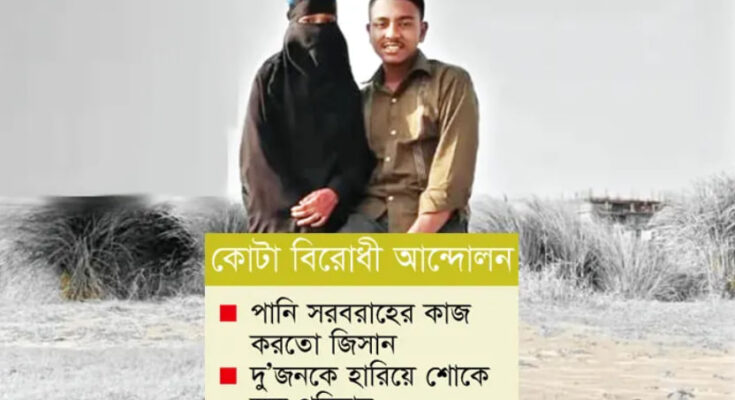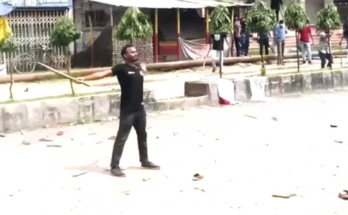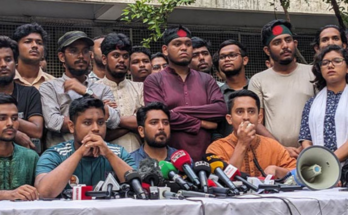Introduction
In a heart-wrenching series of events, the family of 18-year-old Abdur Rahman Jisan has been devastated by the tragic loss of both Jisan and his wife, Rabeya Mishti. Jisan, who was shot dead during the ongoing anti-discrimination student movement in Bangladesh, and his wife’s subsequent suicide, have highlighted the brutal reality many families are facing amidst the violence and unrest. This blog post analyzes the details of their story and the broader implications for justice and human rights in Bangladesh.
The Incident: Jisan’s Death
On July 20, amidst the chaos of the quota reform protests in Bangladesh, Jisan, who worked delivering water to local shops, was shot and killed near his in-laws’ house in Rayerbagh, Dhaka. According to his mother, Jasmin Begum, Jisan was a peaceful individual with no involvement in politics. The day he was killed, he had been out delivering water, a routine part of his job that supported his family.
A Father’s Grief
Jisan’s father, Babul Sardar, was in South Africa when he received the devastating news. A remittance worker, Babul rushed back to Bangladesh, only to find that his son had already been buried. He recounted how he had always feared for Jisan’s safety and had refused to buy him a motorcycle to prevent accidents, only to lose him to a bullet.
Mishti’s Heartbreaking End
The tragedy did not end with Jisan’s death. Struggling to cope with the loss of her beloved husband, Mishti, just 14 months into their marriage, took her own life nine days later. She had been unable to eat or sleep, clinging to Jisan’s clothes and mourning his death. Her suicide was a final act of grief and despair, leaving the family further shattered.
The Family’s Plight
The double tragedy has left the family in a state of profound grief. Jasmin Begum, holding onto the belongings of her son and daughter-in-law, expressed her devastation. She spoke of the peaceful life they had led, now irreparably damaged. The family, which had recently moved to Rayerbagh, was close-knit and supported by Jisan’s earnings from his water delivery job.
Broader Implications
This incident is a stark example of the wider issues facing Bangladesh today. The government’s heavy-handed response to peaceful protests has led to numerous deaths and injuries, sparking outrage both domestically and internationally. The story of Jisan and Mishti is not an isolated case but a reflection of the broader human rights crisis in the country.
International Response
The international community has condemned the violence used against students. U.S. Senators and human rights organizations have called for independent investigations into the actions of the Bangladeshi security forces. The lack of accountability and the continuous crackdown on protesters highlight the urgent need for reform and justice.
Conclusion
The tragic deaths of Jisan and Mishti underscore the severe human cost of the ongoing unrest in Bangladesh. Their story is a painful reminder of the need for accountability, justice, and a compassionate response to the demands of the people. As the nation mourns their loss, it is crucial to push for changes that ensure such tragedies do not happen again.




